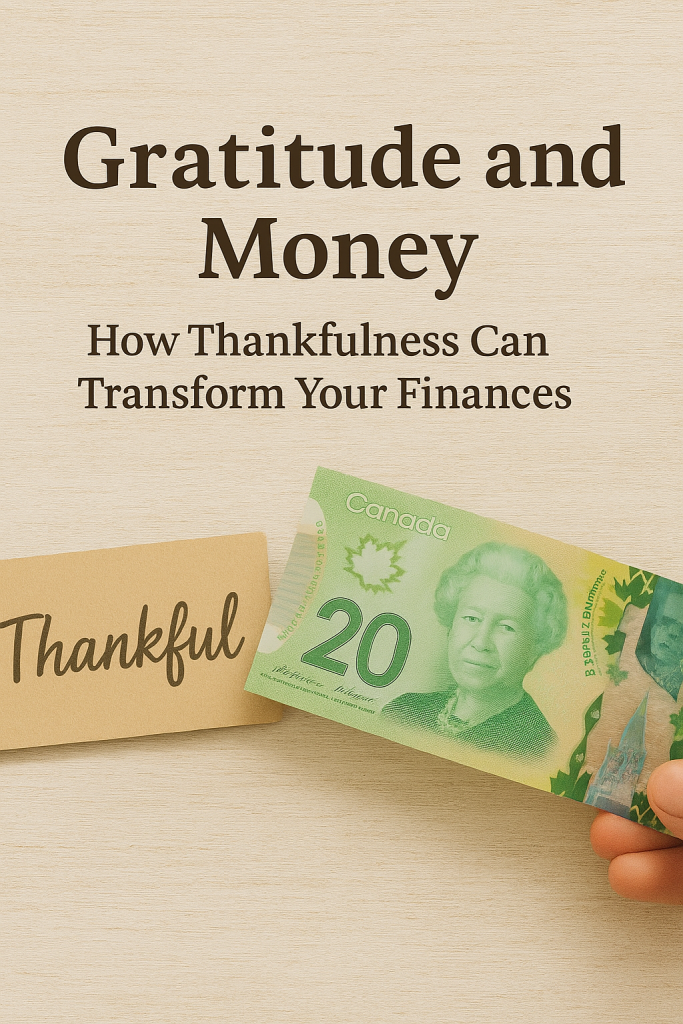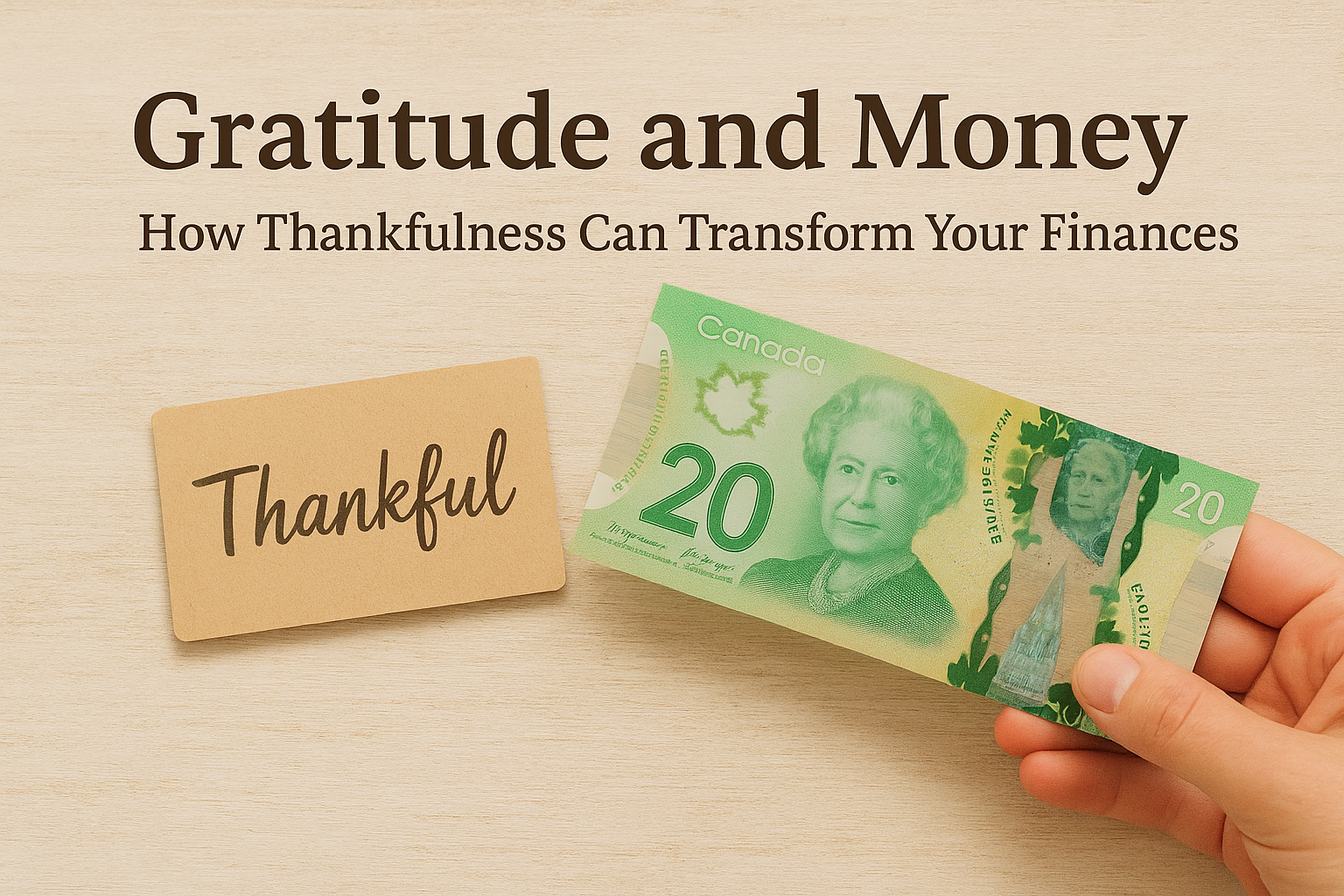In a time when prices are high, budgets are tight, and financial stress feels constant, it’s easy to get caught up in what we don’t have. Lots get caught in FOMO. But what if one of the best ways to improve your relationship with money has nothing to do with earning more — and everything to do with gratitude?
Practicing gratitude helps shift your focus from lack to abundance. It reminds you that even when things feel hard, there are blessings worth noticing. And surprisingly, that mindset shift can lead to better financial habits, smarter choices, and greater peace of mind.
Lately, I have been learning lots about reframing thoughts especially when it comes to money.
Let’s explore how gratitude can help you manage your money more meaningfully — and why it just might be the missing piece in your financial journey.
Gratitude Changes Your Money Mindset
Many Canadians feel pressure to keep up — whether it’s upgrading a phone, chasing a higher-paying job, or comparing lifestyles on social media. This constant pressure can create a scarcity mindset, where you feel like there’s never enough.
Gratitude interrupts that pattern. When you take time to appreciate what you already have — a home that keeps you warm, a meal on the table, or a steady income — your perspective begins to change. You realize that wealth isn’t only about numbers in a bank account.
Author Melody Beattie once said:
“Gratitude turns what we have into enough.”
That simple truth can change everything. When you start from a place of “enough,” you make calmer, more thoughtful financial decisions. You stop chasing perfection and begin focusing on progress.
Gratitude Encourages Intentional Spending
Gratitude also helps you make more intentional choices with your money. When you’re content, you’re less likely to buy things to fill emotional gaps or impress others. Instead, you spend on what truly adds value — experiences, connections, and long-term goals.
Research shows that people who practice gratitude are less impulsive and more satisfied with their purchases. It makes sense: when you’re aware of what you already have, you’re not as easily swayed by “limited-time offers” or shiny new gadgets.
As financial expert Dave Ramsey reminds us:
“You must gain control over your money, or the lack of it will forever control you.”
Gratitude helps you take that control. It slows you down, invites reflection, and encourages choices that support your future rather than quick-fix spending.
Gratitude Builds Financial Peace
Money can be emotional. Whether you’re paying off debt, trying to save, or simply keeping up with bills, financial stress takes a toll. Gratitude helps you pause, breathe, and remember that progress — no matter how small — is worth celebrating.
Appreciating each step along your financial journey builds confidence. That sense of peace can even attract more opportunities — because when you value what you already have, you tend to manage it better.
Japanese author Ken Honda, who wrote Happy Money, puts it beautifully:
“When you appreciate money, it appreciates in value.”
The idea isn’t that money magically grows; it’s that your relationship with it becomes healthier. You start treating it as a trusted partner — something to care for, not something to fight against.
Simple Ways to Practice Gratitude with Money
Here are a few easy ways to bring more gratitude into your financial routine:
- Start a money gratitude journal. Write down three things each week you’re thankful for financially — maybe paying a bill on time, getting a discount, or sharing a meal with loved ones.
- Say thank you when you spend. Whether you’re buying groceries or paying rent, take a moment to be grateful for what your money provides.
- Celebrate small wins. Every step counts — building an emergency fund, sticking to a budget, or saying no to unnecessary spending.
- Give back when you can. Even small acts of generosity remind you that abundance grows when shared.

Final Thoughts
Gratitude doesn’t erase financial challenges — but it transforms how you handle them. By focusing on what you already have, you reduce stress, make better decisions, and build a healthier, happier relationship with money.
Start today: take a moment to thank your wallet, your job, or your journey. You may discover that the key to feeling richer isn’t earning more — it’s appreciating more.


Leave a Reply